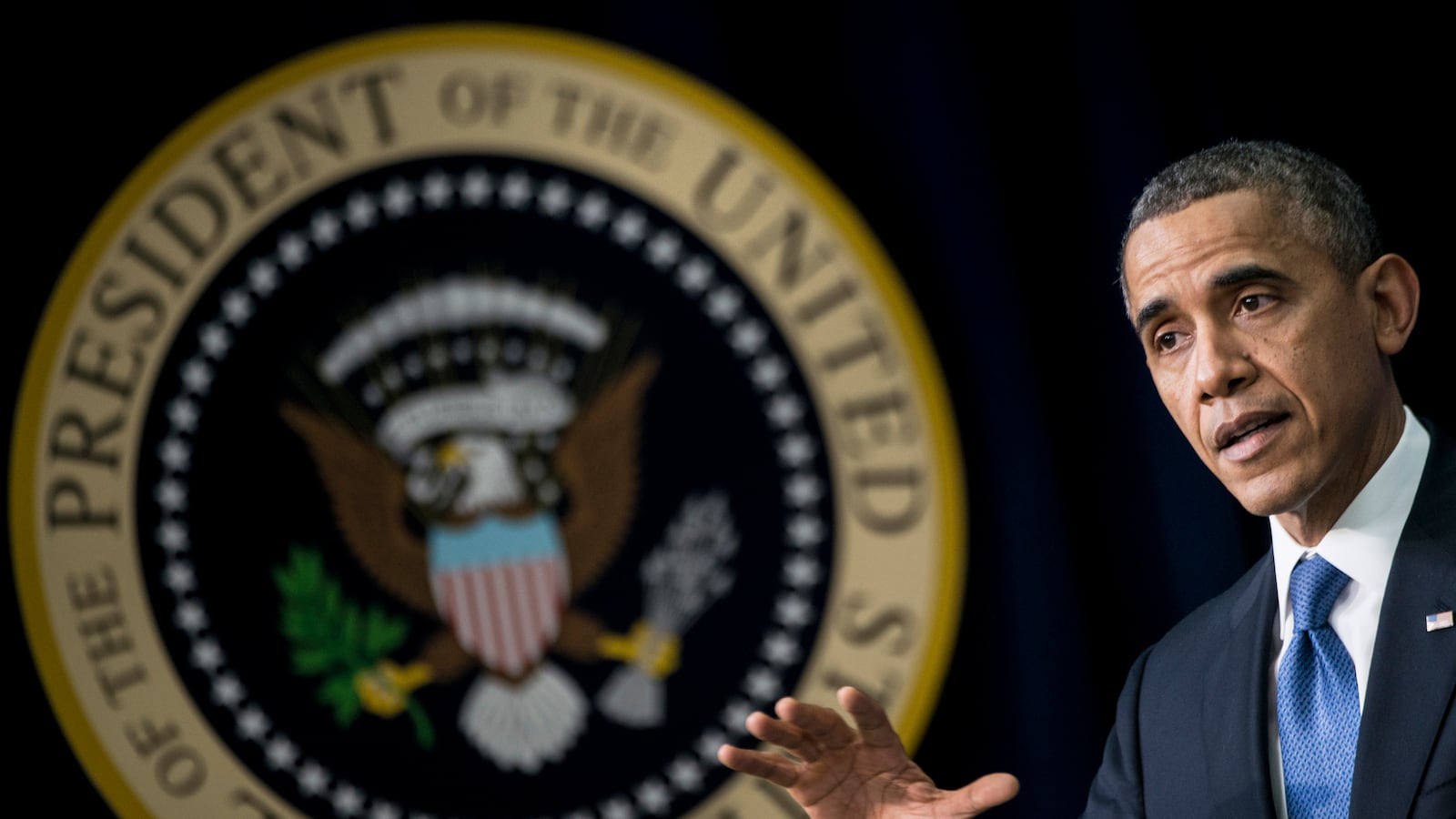
If you’ve been listening to President Obama’s speeches with any regularity over the last two years, you’ll be familiar with this afternoon’s address at the Center for American Progress on income inequality and economic mobility. As usual, he notes the growing gap between the rich and everyone else, the deep insecurity of the middle-class, and the disappearance of working-class jobs that can provide a decent quality of life.
There was, however, something different about this speech relative to all his others. Namely, he zeroed in on one of the key problems liberals have always faced in their efforts to expand the social safety net.
White people.
Even today, nearly fifty years after the end of legal segregation, racial attitudes are the most reliable way to predict support for certain government programs. On one end is outright opposition: Whites who show high levels of “ethnocentrism,” for instance, are more likely to oppose means-tested welfare—like Temporary Aid for Needy Families (TANF)—even after you adjust for ideology. Likewise, whites who show high levels of “racial resentment”—the belief that blacks and other minorities unfairly benefit at the expense of white Americans—are reliable opponents of government programs for the poor.
Indeed, there’s some evidence to suggest that the Affordable Care Act’s poor approval with white Americans owes itself—in part—to perceptions that the law primarily benefits blacks, Latinos and other non-whites. Arguably, one ad in the 2012 election played on this perception, attacking Obamacare as a program that took billions from “you”—illustrated as an older white man—to spend on a new government program for unspecified others. What’s more, there is research to show that one ad—which attacked President Obama for “gutting welfare”—had the effect of priming negative racial attitudes towards African Americans.
Even among those who support safety net programs, the level and degree of support is mediated by racial perceptions. “As whites become more racially resentful,”writes Oberlin political scientist Christopher DeSante, “they are less willing to spend money on welfare, but are always willing to spend more on applicants with white names.”
This fits with a deep well of research which shows that Americans divide welfare recipients into the “deserving” and the “undeserving.” Thanks to decades of slanted images of black poverty, the broad image is that the black poor are lazy and unwilling to work, while the white poor deserve a break. Phrases like “welfare queen” and complaints about “handouts” and “Obamaphones,” for example, are heavily racialized and dredge up (or use) images of inner-city blacks.
Simply put, beliefs about who benefits are key to public opinion on the social safety net. And judging from his speech, President Obama is more than aware of this, telling the audience that “[T]he decades-long shifts in the economy have hurt all groups, poor and middle class, inner city and rural folks, men and women, and Americans of all races.”
From there, he dismisses the idea that these are “exclusively minority concerns,” stating that “The opportunity gap in America is now as much about class as it is about race,” and that “we have to reject a politics that suggests any effort to address it in a meaningful way somehow pits the interests of a deserving middle class against those of an undeserving poor in search of handouts.”
Now, it is true—as he points out—that “The gap in test scores between poor kids and wealthy kids is now nearly twice what it is between white kids and black kids,” and that problems of drug abuse and broken communities have spread beyond the inner cities, to the white working-class. Still, racial inequality exists, even adjusting for income and wealth. Middle-class blacks, for instance, live in neighborhoods that are dramatically poorer than their white counterparts. According to sociologist Patrick Sharkey, “Two out of three black children born from 1985 through 2000 have been raised in neighborhoods with at least 20 percent poverty, compared to just 6 percent of whites.” For every disadvantage conferred by class, in other words, race multiplies it.
But that’s a digression. What’s important is Obama’s decision to address race as a potential barrier to collective action. As far as I can tell, it’s a first for his presidency, which—overall—has been unusually mum on the subject of race. Yes, his comment won’t change the political landscape, but as far as his rhetoric is concerned, it’s a landmark worth noting.






